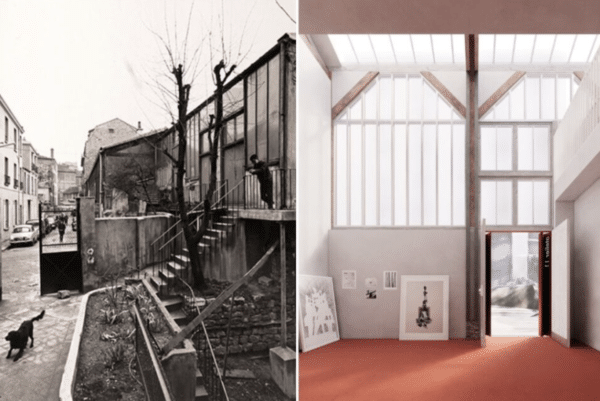This Paris Life
Expert Insight, Breaking News, and Insider Stories on Real Estate in Paris

French city of Lyon tests out four-day work week for public employees.
In a bold move aimed at reshaping the modern workweek and addressing longstanding labor disparities, the city of Lyon, one of France’s bustling metropolises, is leading a groundbreaking experiment. Thousands of its public employees are now afforded the option to transition from the conventional five-day workweek to a more leisurely four-day schedule, all while preserving their current pay levels. This bold initiative, which officially commenced in September, seeks to combat absenteeism and narrow the persistent gender gap within the workforce.
At the heart of this pioneering endeavor is Lyon Metropole, the local authority responsible for governing the city and its surrounding suburbs. Employees under its purview are now presented with a trio of alternatives to the conventional workweek: they can opt for a four-day workweek, a four-and-a-half-day arrangement, or a dynamic week that alternates between four and five workdays. The overarching goal is to ensure that all full-time staff members continue to meet the standard 35-hour workweek mandated in France while affording them greater flexibility in organizing their workdays.
This groundbreaking program, currently in a one-year trial phase, extends its offer to over half of Lyon Metropole’s 9,600 employees, with approximately 5,500 personnel choosing to participate voluntarily. However, certain staff members with fixed schedules, such as waste collectors, are excluded from the initiative.
For Séverine Bernard Barret, an employee in the human resources department, this innovative approach has afforded her the luxury of enjoying a genuine Saturday and Sunday. Under her new schedule, she takes every other Friday off while extending her work hours on the remaining weekdays from 8 a.m. to 5 p.m., with a 45-minute lunch break. Though her workday is now 1 hour and 15 minutes longer than her colleagues adhering to the traditional five-day workweek, she values the extended weekends.
Yet there are trade-offs to consider. Employees who opt for the four-day schedule receive fewer compensated rest days under France’s RTT scheme, designed to grant paid time off in exchange for overtime. Laurie-Lou Lebre, an executive assistant at Lyon Metropole, opted to maintain her traditional workweek, citing the need for flexibility in her childcare responsibilities.
Crucially, Lyon’s initiative is a response to the plight of working mothers who, due to childcare obligations, often assume part-time positions. As Zémorda Khelifi, the councilor for human resources in Lyon’s left-wing municipal government, emphasized when the program was unveiled in May, the aim is to enable these mothers to return to full-time employment and receive commensurate compensation. The initiative, Lyon Metropole believes, could empower approximately 900 female employees to transition back to full-time roles.
Additionally, Lyon Metropole is hopeful that the initiative will curtail avoidable employee absences and serve as a magnet for attracting and retaining talent who might otherwise be lured away by the private sector, particularly in the midst of a cost-of-living crisis.
Lyon’s bold experiment, poised for expansion if deemed successful, stands as one of France’s most ambitious forays into the four-day workweek. Although a few other public entities in France have offered similar programs on a smaller scale, such as the national pension fund Cnav and a regional branch of the social security agency Urssaf in Picardie, uptake has been limited. Some employees have expressed concerns that the compressed four-day schedule could lead to greater exhaustion.
By contrast, private companies like computer retailer LDLC, headquartered in Lyon, embraced the four-day workweek in 2021, reducing the work hours of its employees without sacrificing wages. The move resulted in reduced absenteeism, lower staff turnover, and increased business performance, all achieved without the need to significantly bolster their workforce. According to CEO Laurent de la Clergerie, this innovative approach represents the future of work.
Research conducted in other countries bolsters this assertion. A six-month trial encompassing 61 organizations in the United Kingdom demonstrated that a 20 percent reduction in working hours while maintaining wages significantly reduced burnout, stress, sick days, and turnover, all without adversely impacting revenues. In Iceland, successful trials have led to over 85 percent of the workforce now enjoying a workweek shorter than the previous 40-hour standard, or the option to do so.
However, while surveys consistently indicate that a substantial percentage of French workers favor shorter workweeks, unions remain cautious. They caution that compressing the same number of hours into fewer days, as witnessed in Lyon Metropole, may ultimately prove counterproductive. The prominent CGT union, for instance, describes it as a “false good idea.”
The administration and its unions will conduct their first assessment of the program in early 2024, according to human resources councilor Zémorda Khelifi, marking a pivotal moment in Lyon’s pioneering journey toward redefining the future of work.
Source: www.rfi.fr/en
Contact Paris Property Group to learn more about buying or selling property in Paris.













